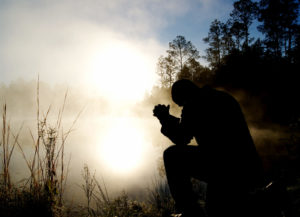Leading theologians and practitioners explore the critical inner work leaders must do in order to confront racism. The Institute is grateful for the contributions of the Rev. Sharell Shippen, who helped our office craft the questions for Black and racially mixed youth groups.
Confronting Racism
An introduction into Race, Racism, and Anti-Racism Work With Youth
What is race? What is racism? And what does anti-racism work look like? These words and phrases are frequently bandied about, without much explanation or understanding of what they actually mean. We at the Yale Youth Ministry Institute are aware that the materials included here focus on the issue of racial injustice, with a specific eye towards racial injustices imposed upon the Black community in the United States. Of course, all people of color experience racial injustices. We are working to provide additional tools that will be useful for all communities, and we appreciate your patience and accompaniment as we work to add more resources that will help everyone do this important work.
The theory of racial formation is a theoretical framework that provides an illuminating view of the sociohistorical process of racial identity, both structurally and personally.[1] Structurally, racial formation provides a way to begin thinking about how the broader patterning of race (i.e. racialized social structures) shapes the institutions, communities, and social worlds in which we live and act. Personally, racial formation offers insight into how we manifest these larger racialized social structures in our everyday lives, and within our bodies. Racial formation is defined as “the sociohistorical process by which racial identities are created, lived out, transformed, and destroyed.”[2]
Critical race theorists seek to understand how race and racism function in order to “uncover the ongoing dynamics of racialized power, and its embeddedness in practices and values which seemingly do not have racial manifestations.”[3] There are four key concepts of critical race theory (CRT) that are important for the curriculum: race as a social fact, racism is normal, intersectionality, and centering the stories of people of color. To be sure, these four claims are extremely strong. An honest assessment of American Christianity and its history of theologically justifying events all Christians should believe were immoral and inconsistent with the Gospel of Christ (e.g. coloniality, indigenous genocide, slavery, to name but a few) reveal a racist history that we must confront if we desire to heal a fractured Church.
As one digs more deeply into the work of anti-racism, the question becomes not what is wrong with those racists out there, but what is wrong with us? What systemic, structural problem do these acts of racism point to that needs tending? How do I contribute to that problem, and how does it manifest within me? How might I practice becoming compassionately anti-racist?
There are two training modules available. Racism and the Inner Self is a training module designed by the Reverends Jill Olds and Sharell Shippen to be the starting point for youth leaders who are just starting to engage in the question of anti-racism. Before bringing this important topic to a youth group, youth leaders are charged with doing some personal, interior work on the subject of racism:
- How do conversations about race and racism make me feel?
- How do I respond when my racism is pointed out?
- What am I to do with these feelings, and how do I respond in a way that is loving and that works for justice?
Dismantling Racism with Youth is a training module designed by the Reverends Jill Olds and Sharell Shippen for youth leaders, designed to explore how to raise these important conversations within youth groups:
- How might one even begin to talk about racism with youth?
- What are some steps that I can lead my youth group towards?
- How can I be thoughtful about anti-racism work as I create programs for my youth?
[1] Omi and Winant, Racial Formation in the United States, 103-159.
[2] Omi and Winant, 109.
[3] Crenshaw, xxix.
Training Modules
Leading theologians and pastors explore the importance of addressing race and racism as part of ministry to youth. The Institute is grateful for the contributions of the Rev. Sharell Shippen, who helped our office craft the questions for Black and racially mixed youth groups.
Curricular and Sample Materials
Anti-Racism curriculum and resources.
A multi-sensory lesson to demonstrate the heightened awareness one acquires in experiencing the every day trials of life.
This lesson will ask youth to look at current injustices in the world and consider how God may be working in the midst of those injustices.
Dr. David Anderson Hooker and Dr. Elizabeth Corrie present a lecture on Peacemaking and Reconciliation.
This lesson will help youth to face the fears and obstacles to having heartfelt and meaningful conversation and connection on the subject of race.
This lesson will help to notice and name racial identities while in a grounded state.
This lesson will help youth to look at the resources available to them to address the needs of their communities.
This is the first of four lessons on discussing race with youth.
This lesson is designed to help youth name the various “parts” of themselves.
This lesson helps youth to compassionately tend to their racialized parts.
This lesson is designed to help youth form authentic relationships across racial barriers.
Articles and Readings
An essay by David Anderson Hooker, Elizabeth Corrie and Itihari Toure on the formation of faith-informed, community-focused, critical consciousness in adolescents from the Joy and Adolescent Faith and Flourishing project.
A collection of articles, videos, podcasts, training materials and curriculum on understanding and combatting racism.
YMI Lectures, video interviews clips and curriculum created by scholars, theologians and practitioners on ministering to youth for racial justice, peace and reconciliation.
This reading is a segment by Almeda M. Wright and Nyle Fort from “Joy: A Guide for Youth Ministry”.
Best Practice Videos
No results found.


